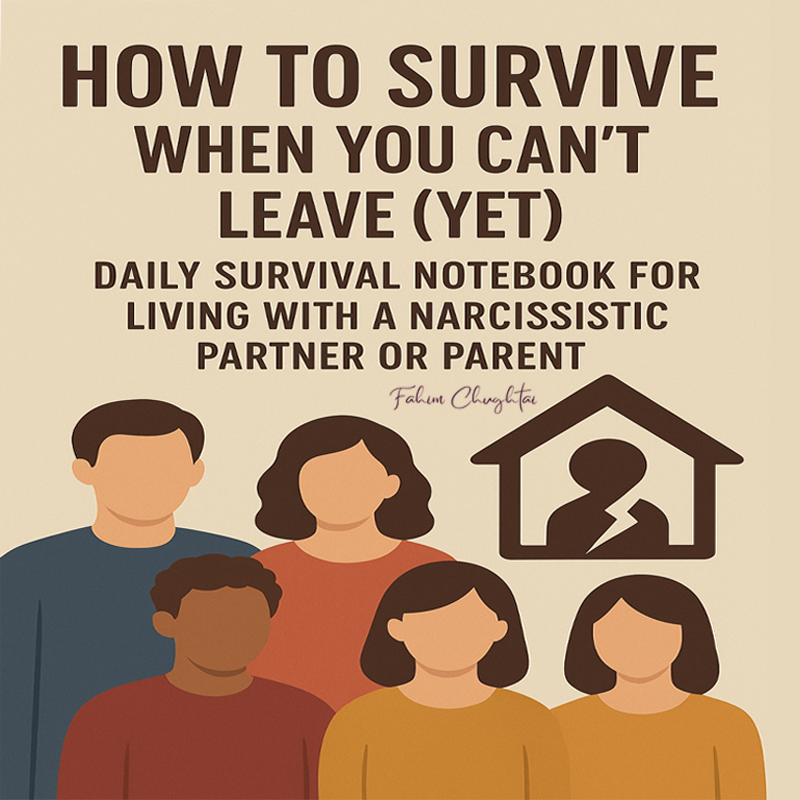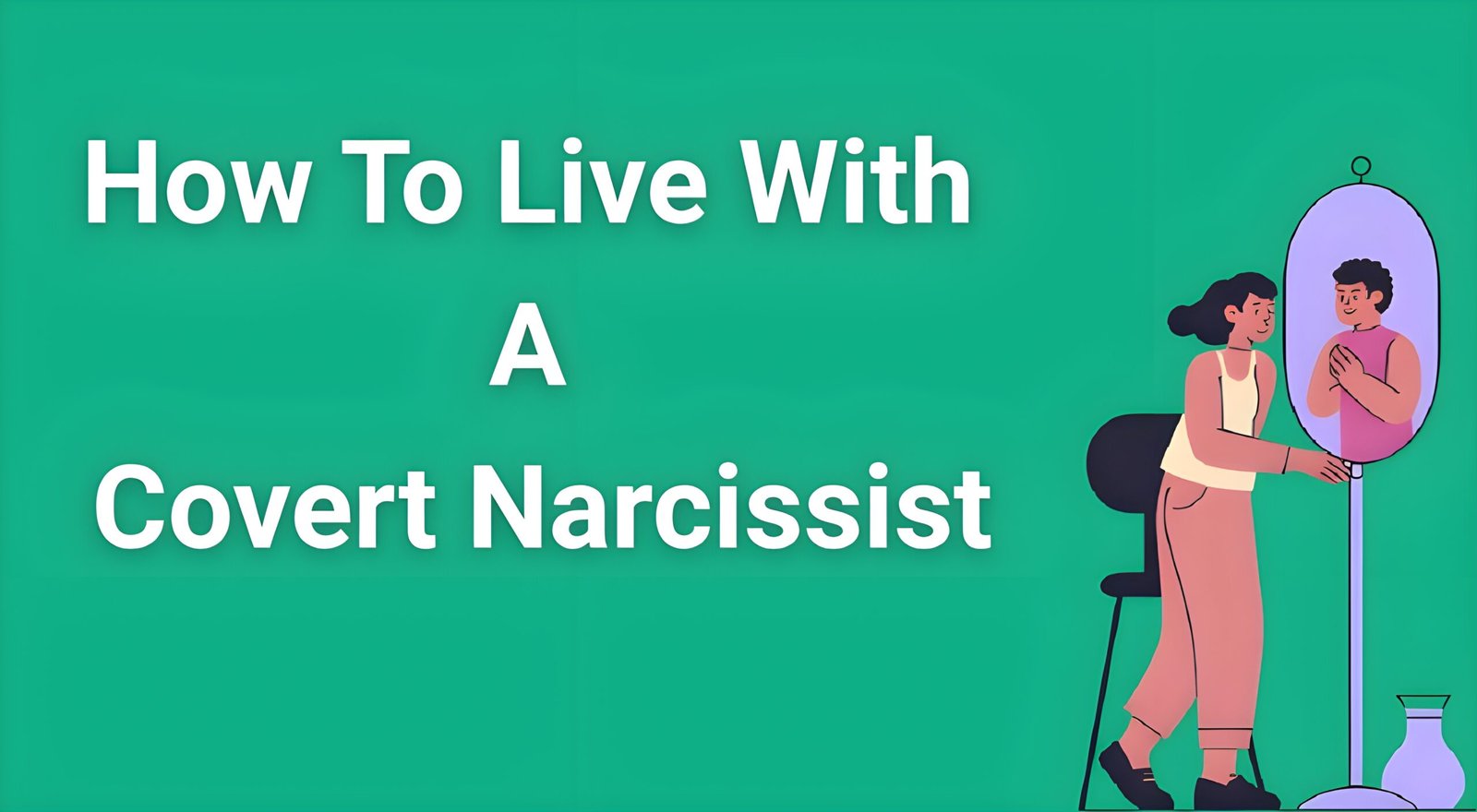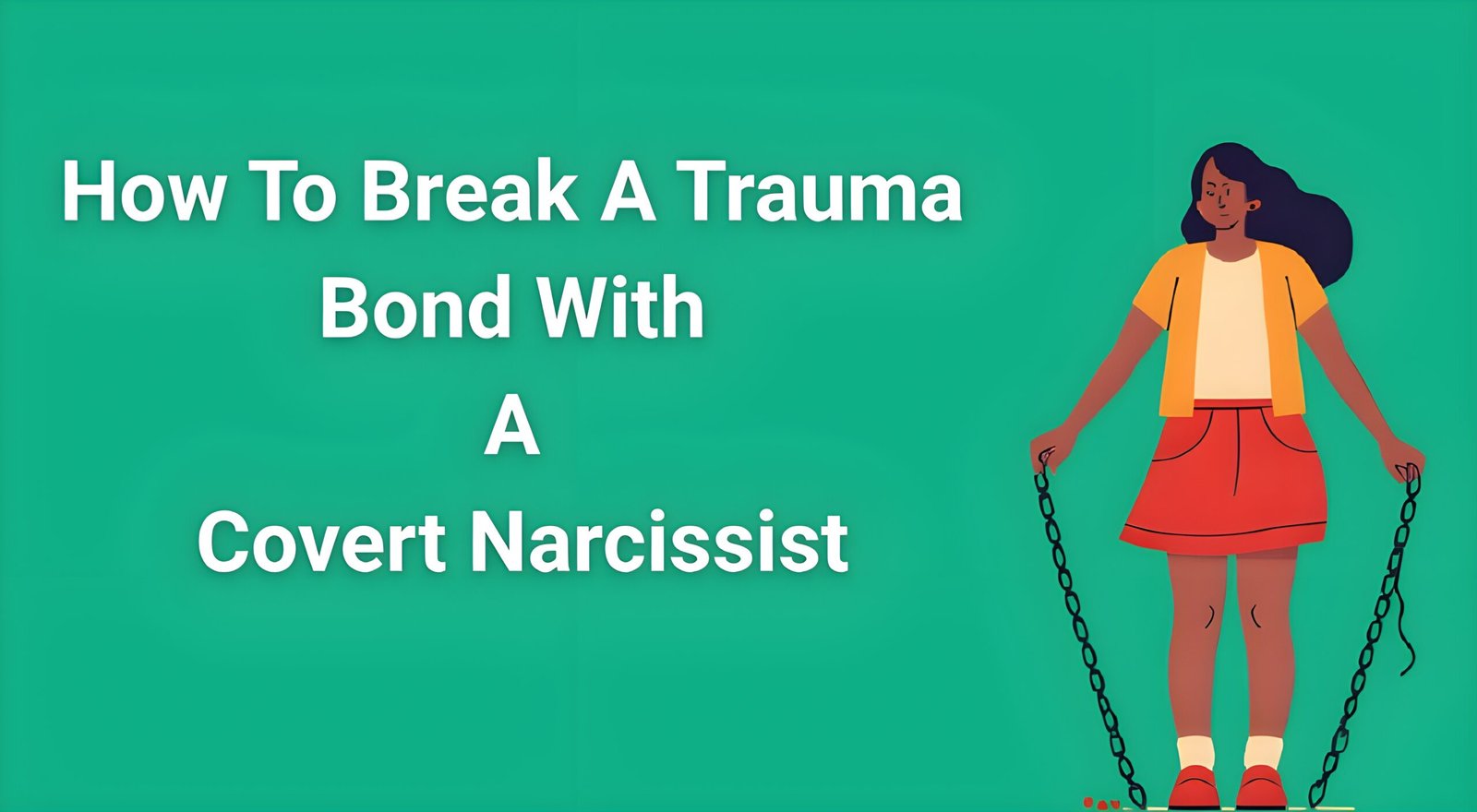Learning how to live with a covert narcissist feels like navigating an emotional minefield blindfolded. Unlike their grandiose counterparts who announce their self-importance loudly, covert narcissists operate in the shadows, making you question your own reality while slowly draining your sense of self. If you’re reading this, you’re likely experiencing the confusion, exhaustion, and self-doubt that comes with sharing your life with someone whose manipulation tactics are so subtle, you’ve probably wondered if you’re the problem.
- Understanding the Covert Narcissist: The Master of Disguise
- Immediate Survival Strategies: Protecting Your Sanity Daily
- Advanced Coping Mechanisms: Long-Term Survival
- Protecting Your Identity and Self-Worth
- The Question of Leaving: When Staying Becomes Impossible
- Healing While You’re Still There: Self-Care Strategies
- When Professional Help Is Essential
- Building Your Future: Life Beyond Survival Mode
- Frequently Asked Questions
- Conclusion: You Are Stronger Than You Know
The truth is, you’re not losing your mind. You’re dealing with one of the most psychologically complex forms of narcissistic abuse, and recognizing it is the first step toward protecting yourself. This comprehensive guide will teach you how to live with a covert narcissist while preserving your sanity, identity, and well-being.
Understanding the Covert Narcissist: The Master of Disguise
Before learning survival strategies, you need to understand exactly what you’re dealing with. A covert narcissist possesses all the core traits of narcissistic personality disorder but expresses them through passive-aggressive behavior, emotional manipulation, and carefully crafted victimhood. They’re the wolf in sheep’s clothing of the narcissistic spectrum.
Key Characteristics of Covert Narcissists
Hypersensitivity to Criticism: They react to any perceived slight with disproportionate hurt, anger, or withdrawal. Even constructive feedback becomes a personal attack in their mind.
Am I Dealing With a Covert Narcissist — or Just Toxic Behavior?
Chronic Victimhood: Everything happens “to them,” and they’re always the injured party. They collect grievances like trophies and use past hurts to justify present behaviors.
Passive-Aggressive Communication: Instead of direct confrontation, they use subtle digs, silent treatments, guilt trips, and emotional manipulation to control situations.
Envy and Resentment: They harbor deep jealousy toward others’ successes while maintaining a facade of support or indifference.
Grandiose Fantasies Hidden Behind False Humility: While appearing modest externally, they harbor secret beliefs about their superiority and specialness.
The Confusion Factor: Why It’s So Hard to Identify
The reason how to live with a covert narcissist becomes such a challenging question is that their abuse is incredibly subtle. They might:
- Act loving and supportive in public while being cold and dismissive in private
- Use your vulnerabilities against you while claiming to “help”
- Make you feel guilty for having needs or boundaries
- Constantly shift blame, making you question your own perceptions
- Play the victim when confronted about their behavior
This creates what psychologists call “cognitive dissonance” – the painful confusion that occurs when someone’s actions don’t match their words or public persona.
Immediate Survival Strategies: Protecting Your Sanity Daily
1. Document Everything: Your Reality Check System
When living with a covert narcissist, gaslighting becomes a daily reality. They’ll deny conversations, twist your words, and make you question your own memory. Combat this by:
Keeping a Private Journal: Record conversations, incidents, and your emotional responses. Use specific dates and details. This becomes your anchor to reality when they try to rewrite history.
Voice Memos: When safe to do so, record important conversations or make voice notes immediately after significant interactions.
Screenshot Communications: Save text messages, emails, and social media interactions that demonstrate their manipulative patterns.
Trust Your Initial Reactions: Your gut instinct is usually right. If something feels off, it probably is.
2. The Gray Rock Method: Becoming Uninteresting
One of the most effective techniques for how to live with a covert narcissist is becoming as boring and unresponsive as possible during interactions. Covert narcissists feed on emotional reactions, drama, and attention.
How to Apply Gray Rock:
- Give minimal responses: “Yes,” “No,” “I see,” “Okay”
- Avoid sharing personal information, emotions, or opinions
- Don’t react to provocations or attempts to start arguments
- Keep conversations focused on necessary logistics only
- Maintain neutral facial expressions and body language
Why It Works: When you stop providing the emotional supply they crave, they often lose interest and may seek drama elsewhere.
3. Establish and Maintain Firm Boundaries
Boundaries with covert narcissists require special handling because they’ll test, manipulate, and violate them while making you feel guilty for having them.
Financial Boundaries: If possible, maintain separate bank accounts and financial independence. Covert narcissists often use money as a control mechanism.
Emotional Boundaries: You don’t have to comfort them through every “crisis” or manage their emotions. It’s not your responsibility to fix their feelings.
Communication Boundaries: Set specific times and methods for communication. Don’t be available 24/7 for their emotional needs.
Physical Boundaries: You have the right to personal space and privacy. Lock your journal, phone, and personal items if necessary.
Time Boundaries: Protect your time with friends, hobbies, and self-care. Don’t let them monopolize every moment.
4. Build and Maintain External Support Networks
Covert narcissists systematically isolate their targets from support systems. Fight this by:
Cultivating Independent Friendships: Maintain relationships outside their influence. Meet friends privately when possible.
Professional Support: Consider individual therapy with someone who understands narcissistic abuse dynamics.
Support Groups: Online or in-person groups for narcissistic abuse survivors provide validation and practical strategies.
Family Connections: Keep close relationships with family members who support you, even if the narcissist tries to interfere.
Advanced Coping Mechanisms: Long-Term Survival
Understanding Their Triggers and Patterns
Learning how to live with a covert narcissist successfully requires pattern recognition. Most covert narcissists have predictable cycles:
The Buildup Phase: Tension builds as they collect grievances or feel their ego threatened.
The Incident: Passive-aggressive attacks, silent treatment, or emotional manipulation occurs.
The Aftermath: They may play victim or act as if nothing happened.
The Reset: Brief period of “normal” behavior before the cycle repeats.
Recognizing these patterns helps you prepare emotionally and protect yourself during vulnerable phases.
Managing Your Own Trauma Responses
Living with constant manipulation creates trauma responses in your nervous system. Address these through:
Mindfulness Practices: Regular meditation, deep breathing exercises, or yoga help regulate your nervous system.
Physical Exercise: Regular movement helps process stress hormones and maintains mental clarity.
Creative Outlets: Art, music, writing, or other creative activities provide emotional release and help maintain your sense of self.
Nature Connection: Spending time outdoors helps reset your nervous system and provides perspective.
The Information Diet: Limiting What You Share
One crucial aspect of how to live with a covert narcissist involves controlling information flow. They’ll use anything you share against you later, so:
- Don’t share your plans until necessary
- Keep your feelings and vulnerabilities private
- Don’t discuss other relationships or friendships
- Avoid sharing your successes or achievements
- Don’t reveal your fears or insecurities
This isn’t about being dishonest; it’s about protecting yourself from someone who weaponizes vulnerability.
Protecting Your Identity and Self-Worth
Reconnecting with Your Authentic Self
Covert narcissists gradually erode your sense of identity through subtle criticism, gaslighting, and emotional manipulation. Reclaim yourself by:
Rediscovering Your Values: List what’s truly important to you, separate from their opinions or expectations.
Pursuing Individual Interests: Engage in hobbies, activities, or learning that brings you joy and fulfillment.
Honoring Your Emotions: Your feelings are valid, even if they dismiss or minimize them.
Celebrating Small Wins: Acknowledge your strength in surviving this difficult situation daily.
Building Emotional Resilience
Daily Affirmations: Counter their subtle put-downs with positive self-talk.
Gratitude Practice: Focus on good things in your life outside the relationship.
Skills Development: Learn new skills or pursue education to boost confidence and independence.
Self-Compassion: Treat yourself with the kindness you’d show a good friend.
The Question of Leaving: When Staying Becomes Impossible
While this guide focuses on how to live with a covert narcissist, it’s important to acknowledge that some situations become unsustainable. Consider seeking immediate help if you experience:
- Escalating emotional or psychological abuse
- Threats to your safety or well-being
- Complete erosion of your self-worth
- Impact on your physical health
- Isolation from all support systems
Sometimes, the healthiest choice is leaving, and that’s okay. Your well-being matters more than maintaining a toxic relationship.
Creating an Exit Strategy (If Needed)
If you’re considering leaving but can’t immediately:
Financial Planning: Quietly build financial independence Support Network: Strengthen relationships outside the home Documentation: Keep records of abusive behavior Safety Planning: Know where to go in an emergency Professional Help: Consult with therapists or domestic violence counselors
For those who feel trapped by financial constraints, fear, or other circumstances, remember that many people have successfully navigated similar situations. You’re not alone, and help is available.
Healing While You’re Still There: Self-Care Strategies
Daily Survival Toolkit
Morning Ritual: Start each day with practices that center you – meditation, journaling, or affirmations.
Energy Protection: Visualize protective barriers around yourself before difficult interactions.
Micro-Breaks: Take small moments throughout the day to breathe, step outside, or listen to music.
Evening Decompression: Process the day through journaling, talking to friends, or relaxation techniques.
Managing the Emotional Rollercoaster
Living with a covert narcissist creates constant emotional ups and downs. Stabilize yourself through:
Routine Creation: Maintain consistent daily routines that provide predictability and comfort.
Emotional Regulation Techniques: Learn breathing exercises, grounding techniques, and mindfulness practices.
Reality Testing: Regularly check in with trusted friends or professionals to maintain perspective.
Self-Validation: Practice acknowledging your own feelings and experiences as valid.
Understanding Trauma Bonding
One reason how to live with a covert narcissist becomes so complicated is trauma bonding – the psychological attachment that forms through cycles of abuse and kindness. This isn’t weakness; it’s a normal response to an abnormal situation.
Signs of trauma bonding include:
- Defending their behavior to others
- Feeling responsible for their emotions
- Believing you can “fix” them
- Feeling addicted to their approval
- Experiencing withdrawal when they’re absent
Breaking trauma bonds requires patience, self-compassion, and often professional support. Understanding that these feelings are neurologically based, not character flaws, helps in the healing process.
When Professional Help Is Essential
Finding the Right Therapist
Not all therapists understand narcissistic abuse dynamics. Look for professionals who:
- Have specific training in narcissistic abuse
- Understand trauma bonding and complex PTSD
- Won’t suggest couple’s therapy with an abuser
- Validate your experiences without minimizing them
- Focus on your healing rather than “fixing” the relationship
Individual vs. Couple’s Therapy
Individual therapy is crucial for survivors of covert narcissistic abuse. It provides a safe space to process experiences, develop coping strategies, and rebuild self-worth.
Still Living With Them? You’re Not Helpless.

Couple’s therapy with a covert narcissist is generally not recommended because:
- They’ll manipulate the therapist
- They’ll use therapy language against you
- They may escalate abuse after sessions
- It can provide them with more ammunition
Focus on your individual healing first and foremost.
Building Your Future: Life Beyond Survival Mode
Developing Long-Term Resilience
Learning how to live with a covert narcissist isn’t just about surviving day-to-day; it’s about building skills and resilience for your future:
You’ve Seen the Patterns. Now Break the Bond.
Assertiveness Training: Learn to express your needs and boundaries clearly and confidently.
Critical Thinking Skills: Develop the ability to recognize manipulation tactics and trust your judgment.
Emotional Intelligence: Understand and manage your own emotions while recognizing others’ emotional manipulation.
Independence Building: Cultivate financial, emotional, and social independence.
Creating Your Support System
Professional Network: Build relationships with therapists, counselors, or coaches who understand your situation.
Personal Network: Maintain friendships and family relationships outside their influence.
Community Support: Connect with others who’ve experienced similar situations through support groups or online communities.
Emergency Contacts: Have people you can call during crisis moments.
Frequently Asked Questions
Can a covert narcissist change?
While personality disorders can be managed with intensive therapy, true change requires the person to acknowledge their problem and commit to long-term treatment. Most covert narcissists don’t see themselves as the problem, making genuine change extremely rare.
How do I know if I’m overreacting?
If you’re questioning your reactions, you’re probably not overreacting. Covert narcissists excel at making their victims doubt themselves. Trust your instincts and seek validation from trusted friends or professionals.
Should I confront them about their behavior?
Direct confrontation rarely works with covert narcissists and often escalates the situation. They’re skilled at deflecting, playing victim, or turning the situation around on you. Focus on protecting yourself rather than changing them.
How long does it take to heal from covert narcissistic abuse?
Healing is individual and depends on factors like the length of the relationship, severity of abuse, and available support. Many people begin feeling better within months of implementing strong boundaries and self-care practices, but deeper healing can take years.
Is it possible to have a healthy relationship with a covert narcissist?
Healthy relationships require mutual respect, empathy, and the ability to compromise – traits that covert narcissists struggle with due to their personality disorder. While you can learn to protect yourself, expecting a truly healthy, reciprocal relationship may lead to continued disappointment.
Conclusion: You Are Stronger Than You Know
Learning how to live with a covert narcissist while maintaining your sanity and sense of self is one of life’s most challenging experiences. The confusion, gaslighting, and emotional manipulation can make you feel like you’re losing your mind, but recognizing these patterns is the first step toward protecting yourself.
Remember that you’re not responsible for their behavior, emotions, or healing. Your only responsibility is to protect your own well-being and make choices that honor your worth and dignity. Whether you choose to stay and implement boundaries or decide to leave, your safety and mental health must be the priority.
You’ve survived every difficult day so far, which demonstrates incredible strength and resilience. Trust yourself, seek support when needed, and remember that you deserve relationships built on respect, empathy, and genuine care.
The path forward isn’t easy, but with the right strategies, support, and self-compassion, you can not only survive but eventually thrive. Your story doesn’t end with this relationship – it’s just one chapter in a much larger narrative of your strength, growth, and ultimate triumph over adversity.
Take it one day at a time, celebrate small victories, and never forget that you are worthy of love, respect, and happiness. The person you were before this relationship still exists within you, waiting to be rediscovered and celebrated once again.






